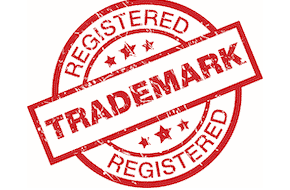
Important Marketing Policies to Be Aware of
Don’t Suffer Ad Disruptions!
If you’re running Google Ads, it’s important to know the Google trademark policy. Whether you want to use a trademark in your marketing, or you own a trademark, there are certain criteria and steps that Google lays out to help ensure that you’re compliant. Being compliant is ideal, because noncompliance can result in having your ads shut down in certain situations! We’ll go through the highlights of Google’s policy, as well as discuss the ramifications outside of the immediate trademark realm.
So Can Trademarks Be Used at All?
Google states outright that they abide by trademark laws, but that doesn’t entirely restrict the use of trademarked terms from general use. If you’re an informational site, like a reviewer, you’re likely safe right out of the gate. As long as you’re not ending the review by recommending your own product in its place, you’re likely covered by fair use.
The other situation where you can use a trademark without worry is you’re a reseller. This means that you directly sell the products associated with a trademark you don’t own. This also covers components, replacement parts, or compatible products or services. For instance, if you sold laptop covers specifically designed for Dell computers, you could use the Dell trademark in your advertising.
However, even if you’re a reseller, there are a few criteria to keep in mind. Ads referring to the trademark for competitive purposes will never be allowed, as well as ads that lead to a site that requires users to provide “extensive” information to get commercial information like price.
Even if you don’t fit into the two above use cases, there are still some ways you can use trademarked terms in your Google Ads. You can request express authorization from the owner of the trademark to use the term. Even if you aren’t directly associated with the owner, it doesn’t hurt to ask. As long as you’re not directly competing with the trademark owner, it’s usually a win-win situation.
It’s also worth noting that even if you can’t use a trademarked term in your advertising text, you can still use the trademarked term as a targetted keyword. There are no restrictions for targetting competitor or trademarked keywords to display your own ads, as long as your ad has relevant content to the search.
What if I Own a Trademark?
While Google states that they abide by local trademark laws, there’s no built-in filter to enforce every single one. Some of the bigger names, like Google themselves, will be watched for and have automatic stops. But smaller companies or products may not enjoy the same automatic coverage. In short, it’s up to the companies themselves to catch trademark usage violations. If you notice somebody violating these policies on your trademark, you should submit a trademark complaint. Just note that you’ll have to prove that you’re the owner of the trademark (or working on behalf of the trademark owner).
It’s worth noting too that after you submit the complaint, Google doesn’t automatically take the ad down. They have to review to ensure there is actually a violation. So it’s not worth it to submit claims about ads that fall within the use policy above. However, if there’s ambiguity, a claim is a good idea just to set a precedent and find out where the line is.
Also note that copyrights or counterfeit products fall under a different category that Google will enforce strictly. Be sure to check their page for the different procedures on what to do in these cases.
Is This the Right Policy?
While these restrictions do have some benefit in protecting trademark owners, they may also prevent those same people from enjoying some benefits. As long as someone isn’t using the trademarked term for direct slander, it can be argued that it’s simply good publicity when other people use the trademarked terms.
As something of a case study, take Mr. WPress. WordPress has a policy regarding its trademark that prevents the use of the name of the platform for advertising purposes, including Google Ads. Mr. WPress itself has had ads taken down for using terms like ‘WordPress developer’ or ‘WordPress custom themes.’ But why? If Mr. WPress makes a sale, we’re essentially creating another member of the WordPress community, who will marry into the system for a long time.
On the Google policy end, it’s hard to qualify as a reseller for more virtual or intangible products like WordPress. If you’re selling car parts, you can simply look at what component go with what model of car, and there’s no arguing. But with something like WordPress, there are arguments on both sides. It could be said that themes and plugins are ‘compatible’ products in Google’s definition. Or, it could be argued that themes and plugins are unnecessary add-ons or upsells, and that it’s an unnecessary risk for the company to allow the explicit WordPress name to be used in so close association. They can’t monitor the quality of every product after all, and don’t want to risk a bad association with their product name.
Yet the same WordPress trademark policy has no restriction on the abbreviation WP, which most people know or assume stands for WordPress. Is it such a big jump from allowing ‘WP’ to allowing ‘WordPress’ in marketing? WordPress has always been a platform based on community, and it seems strange to restrict members of the community from naming it in their advertising.
The onus of action could be placed on WordPress, to be more lax with their trademark. Or, the onus could be placed on Google, to better define “compatible” products. In the current state, nothing is really changed except for the removal of a few letters for abbreviation. It seems an unnecessary restriction that only harms the people who want to proclaim the benefits of WordPress the most.



